When I first heard Elder Uchtdorf’s Saturday morning talk during the October 2015 General Conference, I had high hopes it signaled a movement toward a kinder, gentler LDS Church. I hoped that some combination of pressures from public critical voices, the mass exodus of fleeing member, and Uchtdorf’s sincerely held Christlike outlook on the Mormon gospel had finally manifest as a teaspoon of change in a organization which so desperately needs it.
(Optional: View the video in which I analyze Uchtdorf’s Saturday Morning talk with Jonathan Streeter.)
My optimism turned out to be baseless. (But then, I always have tended to be bright-eyed and naive.) I knew other General Authorities would undo Uchtdorf’s good words. I just wouldn’t have predicted he’d undo himself, that same evening, in the Priesthood Session, in his talk, “Be Not Afraid, Only Believe.”
I expected better from the folk hero of progressive Mormons.
He begins telling the story of biblical Daniel, who was taken captive into Babylon. To make sure his audience is paying attention, Uchtdorf has the young men place themselves into the story:
“Think of it, my beloved young Aaronic priesthood holders, Daniel was very likely your age when he was taken into the king’s court to be educated in the language, laws, religion, and science of the worldly Babylon. Can you imagine my young brothers how it would have felt like to be forced from your home, marched 500 miles to a foreign city, and indoctrinated in the religion of your enemies?”

Actual photograph of Daniel taken into captivity (not really)
This employs a technique known as “Identification and Example.” We are to put ourselves in Daniel’s shoes, and to imagine ourselves in the story. This lowers defenses and helps to convey the emotions and morals of the narrative.
What does Uchtdorf want us to learn? A couple of things, for instance:
“The pressure on him must have been immense to abandon his old beliefs and adopt those of Babylon. But he stayed true to his faith…”

Setting the scene. Some pretty immense pressures indeed.
Uchtdorf relates this ancient tale to modern times. He speaks of defending unpopular truths, particularly on the internet, where we might be “flamed by those who disagree with us.” He points out that Daniel could have been literally flamed for his beliefs by the evil and murderous Babylonians.

Old school flaming
Elder Uchtdorf speculates that Daniel may have been like modern Mormons who “have to work for our testimonies,” which is another way of saying that it’s difficult – and desirable – to set aside tangible evidence and our own direct perceptions of reality in favor of believing as Church leaders want.
It is understandably challenging to actively ignore valid criticism, historical issues, and doctrinal contradictions in order to remain faithful to tenuous claims. This approach to persuasion is what I mean by “thought reform” and “mind control”. Be not afraid, only believe. Shut out all doubts and opposing messages.
In fact, we’ve heard a lot about doubt in recent conferences, and Uchtdorf does not shirk this trend. “Daniel did not doubt,” he reminds us. So neither should you.
The stakes are high. King Nebuchadnezzar had a dream, and when none of his wise men could tell him his dream, he slaughtered them all (because that’s what worldly heathens do). Only Daniel was worthy enough to interpret his dream.
This story establishes the rules of God’s universe: those who are on God’s side might perform powerful miracles. This influence technique is known as “Mystical Manipulation”, convincing members that forces exist which are more powerful than the self.
“Daniel, the young boy from a conquered nation, who had been bullied and persecuted for believing in his strange religion, went before the king and revealed to him the dream and its interpretation. From that day on, as a direct result of his faithfulness to God, Daniel became a trusted counselor to the king, renown for his wisdom through all of Babylon.”
I hope Daniel’s first advice to the king had something to do with how stupid it is to kill off your smartest advisors just because they don’t have mind-reading powers.
While still in Daniel’s shoes, we are to imagine how his story applies to our lives, to think of how we may be persecuted here and now. Since most modern Mormons don’t face serious persecution like Daniel faced (Daniel’s life was at risk), members find oppression in honest criticism, dissent, and disagreement from those of us who speak openly about the truths and evidence we discover.
Seek and ye shall find.
Next, Uchtdorf chimes the bells of Elitism, a manipulation technique which makes listeners feel special:
“The boy who believed and lived his faith had become a man of God, a Prophet, a Prince of Righteousness. To all of us who bear the holy priesthood of God, I ask, are we like Daniel?”
Any man or boy who is paying attention will feel feelings of glory, and will jump at the chance to be a Prince of Righteousness. Even though not everyone can be a prophet like Daniel was.
Elite status has strings attached: “Are we like Daniel? Do we stand loyal to God?”
Are we pure in thought, like Daniel? Or do we entertain frivolous doubts? There is a Demand for Purity here, a list of things we ought to be doing:
“Do we practice what we preach? Or are we Sunday Christians only? Do our daily actions reflect clearly what we claim to believe? Do we help the poor and the needy, the sick, and the afflicted? Do we just talk the talk, or do we enthusiastically walk the walk?”
If the gospel really were centered around helping the needy, i.e. if Conference talks focused like a laser on this important commandment, then I’d have nothing to write about. These brief mentions of charity are only lip service to appeal to human ideals, before they’re quickly superseded with make-work commandments and thought-purifying activities. Members are kept far too busy with all the other commandments to have much time for compassionate acts.
Elder Uchtdorf reminds us how much we owe the Church, leveraging powerful feelings of obligation and reciprocity to generate guilt and shame:
“Brethren, we have been given much. We have been taught the divine truth of the restored gospel of Jesus Christ. We have been entrusted with Priesthood authority to help our fellowman and build up God’s kingdom on earth.”
And here’s where love and service get transformed into something else, conflated, as they usually are, with building up the kingdom.
In the LDS Church, service is synonymous with saving souls, whether that is raising up your own children with gospel truths, or whether it is teaching the gospel to nonmembers or helping a struggling member stay faithful. The two missionaries who show up at your door are in service just as much, possibly more, than if they were feeding the homeless, volunteering at a hospital, or building a school in a developing country.
This logic is simple if you believe the underlying assumptions: When eternal souls are at risk, the most important charitable act is to save them. Everything else seems moot. Starvation and sickness in this temporary mortal coil are easily endured when weighing an eternity of damnation vs. exaltation.
It’s tragic, but the Church co-opts the time and talents of good-hearted people into solving intangible, unverifiable problems of the afterlife, rather than resolving self-evident real-world suffering that’s right in front of us. These monumental efforts of service ought to be directed to lifting the lives of all, even those for whom the LDS Church is not a good spiritual fit, without placing conditions on that service, or without redefining the word to mean “conversion efforts.”
This distortion is how some members end up inadvertently hurting outsiders or even their own family members in the name of love.
He continues to expound upon our indebtedness: “We have the fullness of truth. We have the Priesthood keys to seal on earth and in heaven. Sacred scriptures and teachings of living prophets and apostles are available as never before. My dear friends, let us not take these things lightly. With these blessings and privileges come great responsibilities and obligations. Let us rise up to them.”
This ties reciprocity to Sacred Science, a mind control technique in three parts: 1. The doctrine is true, infallible, total, and universal, 2. The leaders speak for God, and 3. The leaders and doctrine cannot be questioned or doubted. The truthfulness is so awesome that you owe a great deal in return for it.
Uchtdorf reminds us, in Us Versus Them terms, that “Babylon’s worldliness and wickedness live on.” Now, remember that Babylon invaded Israel, hauled everyone off into slavery, threw people into fires for not worshipping their gods, and their king likes to kill off his best and brightest for really weak reasons. Supposedly, that is the level of wickedness surrounding us today, which of course doesn’t make sense.
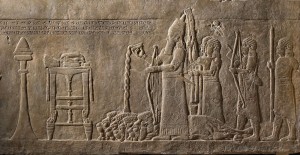
I researched Persia (Babylon) for a novel. Zoroastrianism is fascinating, and its philosophies heavily influenced Judaism, Christianity, and Islam. It’s where we got the idea of angels and demons.
By now, faithful listeners are not in a state of critical thinking. Through this and previous talks, their critical-thinking caps have fallen off and they’ve put on their disbelief suspenders. They aren’t going to ask these kinds of questions. They are only going to feel feelings.
The feelings may go something like this: ‘Worldly people are incredibly heartlessly inhumanly wicked. The worst of them might even be out to persecute me. I should be a little afraid of them. And I definitely shouldn’t listen to anything they have to say.’
That’s why this is called “mind control”; we are conditioned to shut out opposing ideas before we can even consider them.
The logic of this melts pretty quickly when you step back, especially if you know enough “worldly” people to realize that they’re just as kind, gentle, and human as a random sampling of Mormons.
Next, Elder Uchtdorf tells us how to “…live as believers in a world of disbelief.” What follows is a list of mind control techniques with instructions for how to use them on yourself:
“The challenge is ours to daily practice the principles of the restored gospel of Jesus Christ and to live true to God’s commandments.”
A challenge is something we want to do that is really hard. The assumption is that we want to do this. Then, we have to follow all of the principles and commandments of the gospel. Not just serving the poor and afflicted, but all of the other commandments. Which is a Demand for Purity.
“We will have to stay calm under peer pressure, be not impressed by popular trends or false prophets from whatever area they come from.”
Mormons are peers to fellow Mormons, but when a Mormon leader says “peer pressure,” they do not mean pressure from leadership, or friends who support LDS leadership. They mean those who disagree with the tenets of Mormonism. Mormons are to shut out any voice of influence other than LDS voices, which is a very direct form of thought policing: Only listen to us.
Legitimate arguments against LDS doctrines are dismissed as “popular trends.” And I’m fairly certain the false prophets Uchtdorf refers to include the likes of John Dehlin, Rock Waterman, Denver Snuffer, and progressive or dissenting Mormon bloggers. And especially exmormons like me. We are to be judged by our stance rather than on the merits of our words. Milieu Control, restrictions against disconfirming information, is at work here.
“…disregard the ridicule of the ungodly, and we need to resist the temptations of the evil one and overcome our own laziness.”
Pay attention to the Loaded Language he’s using. Every single word in that sentence is negatively charged.
As a fiction writer, I know the power of word-choice to generate predispositions and assumptions to color a scene, invoke emotions, or lead a reader into judging (or misjudging) a fictional character. “Shifty” and “mysterious” mean about the same thing, but if I describe a character as shifty, the reader will suspect they are up to something. If I describe them as mysterious, the reader will be intrigued in a neutral, possibly even positive way.
Uchtdoft’s words are: “ridicule,” “ungodly,” “temptations,” “evil,” “laziness.”
“Ridicule” instead of “criticism” (neutral) or “reasoned dissent” (positive).
Listeners are to “disregard” it, without any thought whatsoever, thus building mental armor against outside influence, no matter how factual, interesting, well-meaning, or persuasive it may be.
“Ungodly” implies “immoral”, a lack of feeling or care for the well-being of others. It’s a smear-word. Listeners need to “resist”, i.e. immediately set aside and shut out “temptations of the evil one” (instead of “opinions”, “choices”, “information”, or “alternate viewpoints”).
Through this black and white lens, there is only one motivation for anyone to criticize the gospel. And only one way to approach such thoughts: resist. Otherwise you’re falling into Satan’s trap, and who wants that?
And for the cherry on top, he lumps the listener right into this whole paragraph of icky words and evil people: You need to overcome your own dang laziness.
Mormons are some of the most hardworking people I know. Spurred on by this constant pressure from leadership, Mormons “all have work, let no one shirk!” As a Mormon, any moment I took to rest was filled with guilt. I could barely enjoy myself. There was always something left undone. This instant self-judgement sticks with me today.
Yet rest is necessary for our health. It’s not “laziness,” it’s fulfilling. It is one of the ingredients for joy, serenity, mindfulness, and peace. In fact, you cannot be mindful until you learn how to focus less on doing and learn how to just “be”.
This is the most frustrating and doublethink part of Uchtdorf’s talk. Earlier that morning, he delivered a much more healthy, opposite message: simplify and “start where you are.” In that talk, he seemed to be giving members permission to relax a little, lowering expectations just a bit to undo the harm currently being caused by the constant drumbeat of toxic perfectionism.
This doublespeak gives leaders the best of both worlds: They can point to the softer words to deny any accusations or blame for members who suffer by working too hard, yet members really do work too hard because of phrases like “overcome our own laziness”. It’s a black and white Double-Bind for members who are either “lazy” or working themselves into depression. The member cannot win this shell game. Only the Church can.
Uchtdorf returns to Daniel’s story and asks, what if Daniel had given in to peer pressure in Babylon? He could have been popular, at least until King Nebuchadnezzar started lopping off heads. Without God’s favor, poor Daniel wouldn’t have been worthy of the powers of dream interpretation, which saved his life.
This is a call to Dispensing of Existence, the death threat of mind control. And it instills phobias.
Moreover, Daniel “…would have lost his connection to light and wisdom.” Which implies that nonmembers and exmembers and other unrighteous people don’t have connection to light and wisdom.
I beg to differ. Light and wisdom are available to anyone on earth. Yes, there are actions and mental exercises that leave you more capable of experiencing light and wisdom, but the LDS Church does not have a monopoly on those ideas, nor does any other religion. In fact, many of the teachings of Mormonism, particularly the controlling and manipulative doctrines, block off our access to this light and wisdom and make us only open to the messages the leaders want us to receive. Which may not actually be what God or a higher power wants us to hear.
Uchtdorf then brings up the devil again: “Satan, our adversary, wants us to fail. He spreads lies as part of his effort to destroy our belief.”
More Us Versus Them. Anyone who criticizes the Church is a liar and on the side of Lucifer. And those who criticize are all out to “destroy”.
“He slyly suggests that the doubter, the skeptic, the cynic is sophisticated and intelligent…”
Hey, that’s me! I can take the heat…
But sadly, he’s also lumping in the thousands of innocently confused and struggling Mormons who want to believe, but who have run into unsettling information on the internet, or they have experienced painful disconfirmation in the course of their own lives. These are the “doubters,” and they don’t deserve this treatment from Elder Uchdorf. They’re suffering enough as it is.
“…while those who have faith in God and his miracles are naive, blind, or brainwashed.”
Remember, we’re still talking about Satan here. Satan is supposedly saying these things. And here I am, in this very post, more or less saying that the Church “brainwashes” people, so he’s still talking about me and my colleagues… via talking about Satan.
Often members take it really personally when I critique the Church and it’s policies. I frequently hear defensive retorts of, “I’m not brainwashed!” or “How dare you call me a mindless zombie!”
But I specifically avoid speaking negatively about members, and I consciously tread clear of accusations or assumptions about the intelligence or culpability of sincere Mormons.
I direct my words at the harmful teachings, policies, and choices made by leadership. The difficulties created by these teachings are incredibly difficult and painful to many members. I know because I’ve been through it. I will not inflict blame reversal, and I don’t want to mock any believer for doing everything she thinks is right.
“Satan will advocate that it is cool to doubt spiritual gifts and the teachings of true prophets.”
This is pretty dismissive of the process of doubt, which is highly distressing. Members risk losing their entire families and friends, their anchors to reality, identity, and vast parts of their mental landscape, because of their legitimate concerns. Doubt is not taken lightly by those who go through it.
This particular section of the talk has been especially spiritually abusive, morally no different than calling a child names to make her stop crying.
“Our spiritual experiences are sometimes too sacred to explain in worldly terms, but that does not mean they are not real.”
People have spiritual experiences the world over, and they can be very difficult for anyone to explain, but few testify of the truthfulness of the LDS Church. I just finished reading a book called Autism and Spirituality which attempts to describe, with many academic references and personal descriptions, the various kinds of “peak experiences” reported by people from all backgrounds. This aspect of human nature is not exclusive to Mormons.
I have a catalog of personal spiritual experiences that I usually don’t bother explaining, because they are mine. Because I don’t need to convince anyone else of the validity of my subjective truth. These treasures are meant only for me.
But LDS leaders co-opt personal epiphanies by redefining them in terms of their monopoly on truth. If the experience points away from LDS canon, then it is dismissed as counterfeit, reframing such sacred experiences as profane.
In Uchtdorf’s eyes, many of my most spiritual moments would seem delusional or even abominable. But I will not doubt his spiritual experiences. I am quite certain they are just as sacred as mine.
“Heavenly Father has prepared for his children a spiritual feast offering every kind of exquisite food imaginable, and yet instead of enjoying these spiritual gifts, the cynics content themselves with observing from a distance, sipping from their cups of skepticism, doubt, and disrespect.”
Rather than address the content of the arguments that we skeptics make (as I am addressing the content of Uchtdorf’s talk), he simply maligns us all and ascribes false motives. I’ve already been thrown into Satan’s camp, and here he’s saying I’m choosing to refuse God’s feast. And apparently, I’m disrespectful to boot.
I find this paragraph a bit hurtful. I kept trying to eat God’s feast, and it felt like attempting to stay nourished on alternate diets of all cookies one day, and all moldy unleavened bread the next. I repeatedly found the fruit not good or nourishing to my soul.

Mormonism offers a spiritual feast for some, but for me, it usually felt more like this advertisement version of a real burger, created by a “food stylist,” which is made to look good but don’t eat it!
But when I partook of feasts elsewhere (like in the woods with my friends or while meditating peacefully or while working on personal growth from in self-help books), I felt a satisfying, well-rounded diet that contained actual meat… not just promised meat “someday” when I finally became flawless at drinking milk, but actual meat, already prepared and free for the taking.
This contradiction tormented my mind until I finally realized the Church wasn’t the only source of truth. Then it all made sense.
Here, Uchtdorf offers us Old Country Buffet, and tries to convince us it’s not only the best restaurant in town, it’s the only one.
And the poor doubters. I’ve got to stand up for them again.
I have chosen to be public about my criticism and skepticism. But a doubter is just a good Mormon who struggles to believe, which is basically every Mormon at some point in their lives. In this very talk, Uchtdorf stated that belief isn’t easy. But now he’s saying that the doubters are sneering down their noses right along with infidels like me.
While I may deserve some of his criticism, and I can take it and respond to it in kind, “doubters” don’t choose this path. They don’t deserve to be maligned like this.
“Why would anyone walk through life satisfied with light from the candle of their own understanding, when, by reaching out to our Heavenly Father, they could experience the bright sun of spiritual knowledge that would expand their minds with wisdom and fill their souls with joy?”
Why indeed? If it were that easy, I should think we would.
“…but wanting to believe is the necessary first step.”
This is so heart-wrenching. I regularly hear story after story of struggling Mormons who want so hard to believe. But they simply can’t. These members have already taken the first step, and the second, and the third, yet still they are unfilled by the feast, unwarmed by the light.
Uchtdorf then doubles-down with a pound of hurtful blame reversal: “God is no respecter of persons. He is your Father. He wants to speak to you.”
Ouch. So, if you’re like me, and you prayed as hard as you could, in as many different ways as you could, going on years at a time, and you never got an answer? Or worse, you thought you received a promise that never was fulfilled? Well, it’s not God’s fault, and it’s not Uchtdorf’s fault for telling me things that aren’t true. It’s still all my fault. I’m shunning God, not the other way around.
How lonely this is to those who hear it and believe it in trust. How painful.
But maybe I’m doing it wrong? Uchtdorf is about to tell us how to do it:
“However, it requires a little scientific curiosity. It requires an experiment upon the word of God, and the exercise of a particle of faith. It also takes a little humility. And it requires an open heart and open mind. It requires seeking in the full meaning of the word. And perhaps, hardest of all, it requires being patient and waiting upon the Lord.”
First, we’re denying two important facts. Most Mormons: 1. Already want a testimony, 2. Have heard all this and have tried it before. A little curiosity and faith? These Saints have faith the size of a whole mountain of mustard seeds. It is often not enough and never will be.
Then he calls upon humility, the LDS brand of humility, which has been instilled from many other sources: It is humility towards the teachings and the leadership. This called Doctrine Over Self. When it comes to a choice between doctrine and the person, the doctrine must always win – no matter who is harmed in the process.
And you must come with an open heart and mind, to make sure you’ve removed your critical-thinking cap.
Maybe you’ve done everything right, and it’s still not working. Could it be that the formula is wrong?
Nope! Just wait longer. Even if it takes decades. The Church is so true, that the truth will eventually be revealed to you, but you’ve got to just keep enduring.
This strategy, by the way, is not scientific at all, in spite of his use of this word. I have yet to see a credible scientist say, “But wait, the experiment will work! …eventually. Maybe we should wait longer?” Length of time is built into the prediction made by the hypothesis, and if the results don’t match (including predicted timing), then the hypothesis needs to be reworked or thrown out in favor of a theory that does fit the evidence.
“If we can put the burden of proof on God, we think we can excuse ourselves from taking God’s commandments seriously, and from taking responsibility for our relationship with our Heavenly Father.”
I know the world is wicked, but out here, we put the burden of proof on whoever is making the claim. There’s a good reason for this: Because billions of people make opposing claims every single day. There are spiritual claims, health-fad claims, money-making claims, and claims about reality. The world is filled with as many pronouncements as there are imaginations.
Logic puts the burden of proof on the person making the assertion to help filter out the many false claims, for instance, the stance that aliens, not God, created life on earth. If we’d ask for proof from a UFO enthusiast, why would we make an exception for Mormonism and not put the burden of proof on God?
And it’s not really God we’re putting the burden of proof on – it’s the leaders. Because we don’t actually know what God is claiming; He’s not here to tell us. We have a multitude of voices making assumptions about God’s will, and they can’t all be right.
A lack of evidence is inconvenient, but it’s the reality that LDS leaders need to accept. Which may mean their church isn’t actually true. Facing that is a very hard pill to swallow, not an easy one as Uchtdorf states:
“Skepticism is easy. Anyone can do it.
“It is the faithful life that requires moral strength, dedication, and courage. Those who hold fast to faith are far more impressive than those who give in to doubt when mysterious questions or concerns arise.”
The man who says this is not a man who has left the Mormon Church; who has had his entire belief-system ripped out by its roots leaving only bleeding, throbbing wounds and a deeply seated sense of betrayal. Yet by appealing to members’ sense of strength and morality, he hopes to keep them in the fold just a little bit longer.
“…faith is not valued by society. The world has a long history of rejecting that which it does not understand.”
Society has also rejected snake oil, the heliocentric view of the universe, the Amish way of life, putting lead in paint, and a few other flawed concepts. Sometimes there are good reasons to reject ideas when evidence supports a better way.
“Brethren, I testify that even in the toughest of times, the Savior will say to you as he said to an anxious father on a crowded street in Galilee, Be not afraid. Only believe.
“We can choose to believe. For in belief we discover the dawn of light. We will discover truth. We will find peace.”
Through some of the talks in this Conference, it seems like the Church is trying new tactics, perhaps since the old ones haven’t been working as well as they used to. I’ve seen acknowledgement that doubt is real and legitimate, I’ve heard validation of the trauma of LGBT members, I’ve seen calls to reduce the toxic perfectionism and demand for purity…
Yet in this talk, Uchtdorf seems to be employing the same old-fashioned mind control of years past. It’s not only damaging, but it isn’t going to be effective anymore. This isn’t going to help listeners avoid disconfirming information on the internet, and the troubling doubts stirred up by fleeing family members will go unresolved. And since he belittled and dismissed the very real torment of doubt experienced in such a rigid belief system, this talk will cause additional pain for many of the members it was intended to comfort.
Elder Uchtdorf tells members they only have to want to believe! But members already want to believe. Some of them desperately. The blame is placed squarely on their backs, but they will find no solace, no peace, no joy, nor truth as he has promised.
Uchtdorf’s healing words from that morning, to “start where you are,” are completely undone. And the words of this talk will cause very real psychological and emotional harm to those who, in good faith and sincere trust, take it seriously.
I mourn for them, and I call the Church to take responsibility. Please stop these trauma-inducing, manipulative, self-serving talks. Let’s begin a path of healing, nurturing, and acknowledgement, and end the suffering of troubled Mormons. It is in the Church’s power to do so. Let it be done.

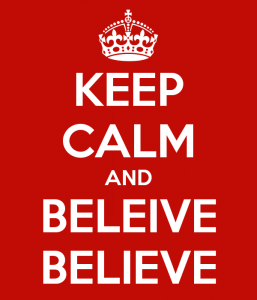
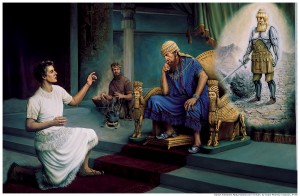






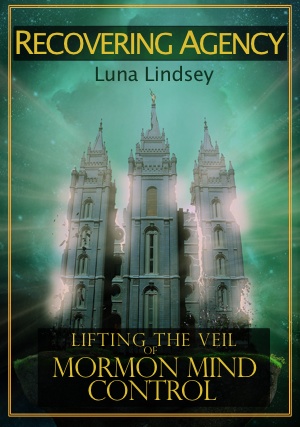
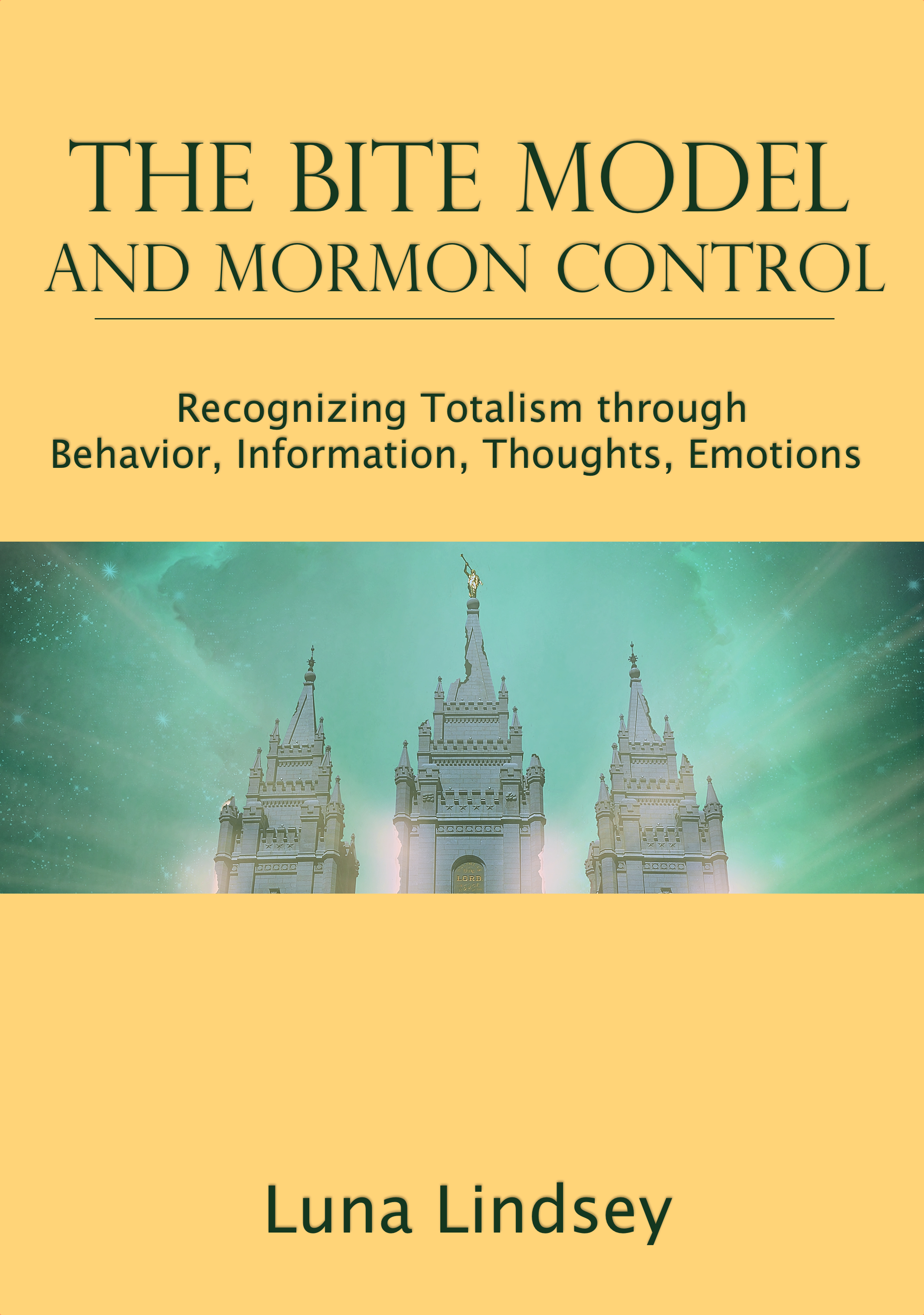
4 comments
1 ping
Skip to comment form
Very well written and in my opinion spot on.
Author
Thank you, Arthur!
You either believe that the Church represents the will of the Lord, or you believe it doesn’t. Pick one and quit bitching about how it makes you feel bad. It’s your damage. Get over it.
Author
I believe in protecting and healing those who have been or are being abused. I believe in using my time and talents to make the world a better place. I believe that abusive organizations need to be called to account and change. I will not stand by while I hear the cries of the innocent calling out for help. I will mourn with those who mourn and comfort those who stand in need of comfort.
Your words here do not sound very loving or Christlike. I have to wonder if you truly believe the core teachings of Christ, if you feel the need to tear down those who have legitimate disagreements? I’d love to debate you on points of fact or ways I may be wrong, but I do not appreciate unkind words from anyone, towards anyone, on my blog.
[…] Elder Uchtdorf’s Spiritual Abuse: “Be Not Afraid, Just Tune Out All Opposing SignalsR… […]